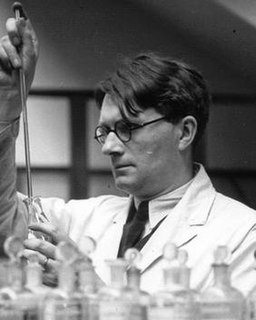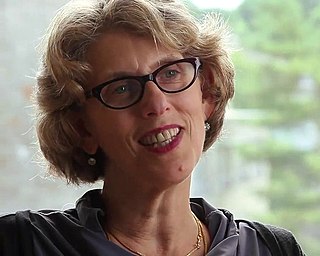A Quote by Joel Salatin
The linear, single species idea of farming is an assault on ecological function. Something's going to break down in that system - anything from soil structure, in economics... but where to start is with true ecological function.
Related Quotes
In an ecological perspective, in other words, there are few accidents or anomalies, only outcomes based on system structure and dynamics. Climate change and glittering malls, Calcuttan poverty and sybaritic wealth, biotic impoverishment and economic growth, militarism and terrorism, global domination and utter vulnerability are not different things but manifestations of a single system.
If you look into the way that materials are used in an ecological system you'll notice that you'll find that there is no waste. The waste of one organism becomes food for another and everything's recycled in an ecological system whereas in our human built environment there's a throughput system. We use something then we throw it away... We have to imitate nature and try to re-use everything we make as human beings or recycle them - when we cannot re-use or recycle them we should try to reintegrate them back into the natural environment.
Striving for longevity through versatility facilitates what we might call an ecological or true materialism. ... we are not truly materialist because we fail to invest deep or sacred meanings in material goods. Instead, our materialism connotes an unbounded desire to acquire followed by a throwaway mentality. True materialism could become part of a new ecological consciousness.
The ecological crisis we face is so obvious that it becomes easy...to join the dots and see that everything is interconnected. This is the ecological thought. And the more we consider it, the more our world opens up." The ecological thought "...is a vast, sprawling mesh of interconnection without a definite center or edge. It is radical intimacy, coexistence with other beings, sentient and otherwise.
We see a world of abundance, not limits. In the midst of a great deal of talk about reducing the human ecological footprint, we offer a different vision. What if humans designed products and systems that celebrate an abundance of human creativity, culture, and productivity? That are so intelligent and safe, our species leaves an ecological footprint to delight in, not lament?
A recent review of different agricultural options for the future was conducted by a panel of experts. The scientists posed the question: How are we going to feed the world when there are nine billion people on it, as there will be by 2050? And the answer they came up with was industrial agriculture won't work and genetic engineering won't work and the solution is going to be sustainable, and going to ecological kinds of farming that are based on local environmental conditions that work with local ecosystems available to develop a richer kind of farming technology.
Once women invented farming, and began to keep and breed animals, they discovered the crucial function of the rooster and the henhouse. Fathers suddenly gained a function, and could do what only women had been able to do for all those millions of years--point at a child and say, "That is my son," "That is my daughter." Patriarchy quickly followed, beginning about five thousand years ago; a very short time in the development of our species, but covering all of recorded history.
The new paradigm may be called a holistic world view, seeing the world as an integrated whole rather than a dissociated collection of parts. It may also be called an ecological view, if the term "ecological" is used in a much broader and deeper sense than usual. Deep ecological awareness recognizes the fundamental interdependence of all phenomena and the fact that, as individuals and societies we are all embedded in (and ultimately dependent on) the cyclical process of nature.



































